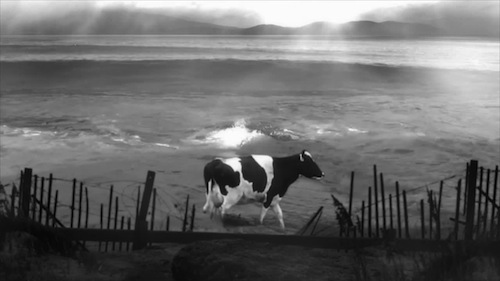Direction: Abbas Kiarostami
Country: Iran / France
24 Frames is an experimental posthumous work by Iranian filmmaker Abbas Kiarostami. To form the base of this interesting, if unconventional, experiment, the latter first employed famous paintings before switching to his photographs. That media, representing an instant and unique capture of the reality, becomes the framework over which he expresses his imagination of what could have happened before and after that particular moment.
Introduced by fade-ins and culminating in fade-outs, the frames exhibit nature in various forms. You may indulge yourself in wintry landscapes populated by wildlife and occasional human activity, or interior shots in which birds, lingering on the other side of a window, become the main subjects, having contrasting trees composing the beautiful black-and-white images. Intrinsically, some of them impel us to reflect on life and death, while others, made me think about how the humankind affects nature.
Whereas some segments are repetitive and a bit monotonous, others feel melancholically rich in its minimalism. Once in a while, there are surprises that force you to look at and think further about what was put in front of your eyes, but it’s mostly sadness that reigns. As an exception to this rule, a specific frame comes to my mind, where six persons, with their backs turned to the camera and facing the Eiffel tower in Paris, are too absorbed to pay attention to the other pedestrians. The liveliness of the people’s movements is reinforced by the melody of Les Feuilles Mortes.
Although 24 Frames is attractive to the eyes and senses, it requires patience since there are no characters or even a plot to follow. Kiarostami prefers simplicity to opaqueness, and his method is pure, almost symbolizing the vision of a child. Not for everyone, these art forms are to stare at, relax, and enjoy.



